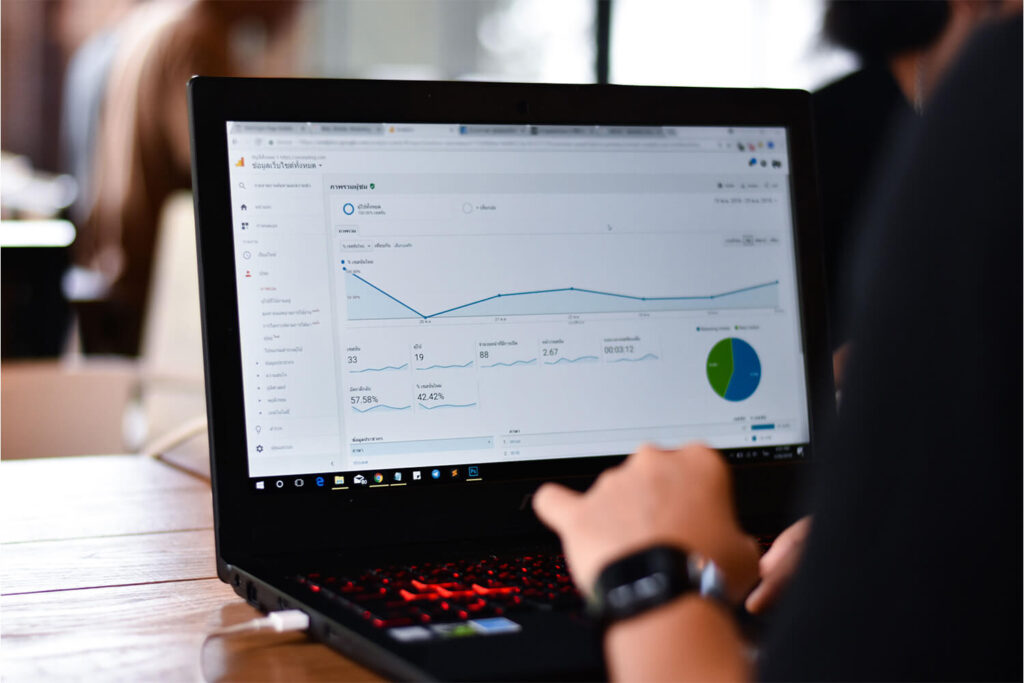It’s no secret that Google is the most popular website in the world, with nearly 90 billion total monthly visits. And while you may think that promoting your small business on such a huge platform would be impossible, it’s actually quite easy with the right approach and expertise.
Here’s what you need to know:
Why Advertise on Google?
Unless you live under a rock, you likely use Google on a regular basis. Sure, it’s convenient for consumers but why is it beneficial for advertisers? This search network is also a powerful online advertising platform.
Here are some key statistics to demonstrate why you should have a Google advertising campaign:
- It’s estimated that Google processes 5.6 billion searches per day
- Google dominates the worldwide search market with over a 92% market share
- Google also owns YouTube, one of the most popular social media platforms in the world
- Google advertisers earn an average of $2 in revenue for every $1 they spend on ads
- Google advertising offers intent since people are actively searching for answers and products
How Does Advertising on Google Work?
You know how Google works, but do you know how Google Ads works? Likely not. Formerly known as Google AdWords, Google Ads utilizes a pay-per-click (PPC) model wherein different companies bid for specific keywords. However, PPC ads system isn’t rigged toward large companies with lots of money to spend.
Instead, Google uses a formula that combines the bid with the ad quality score to determine your final rank. This means that smaller businesses with smaller marketing budgets can still compete and win top keywords on Google. Relevancy, landing page experience, and ad copy all affect whether you win Google’s PPC auction—and the visitors that follow.
How Much Does Advertising on Google Cost?
The cost of advertising on Google varies depending on the ad format, keyword, and industry. The average cost per click (CPC) for search ads on Google across all industries ranges from $1 to $2. The average CPC for display ads on Google across all industries is under $1.
Here are the costs associated with different industries:
- Auto: $2.46 for search and $0.58 for display
- B2B: $3.33 for search and $0.79 for display
- Consumer services: $6.40 for search and $0.81 for display
- Ecommerce: $1.16 for search and $0.45 for display
- Finance and insurance: $3.44 for search and $0.86 for display
- Health and medical: $2.62 for search and $0.63 for display
- Legal: $6.75 for search and $0.72 for display
- Real estate: $2.37 for search and $0.75 for display
- Technology: $3.80 for search and $0.51 for display
- Travel and hospitality: $1.53 for search and $0.44 for display
Here are some of the most expensive keywords:
- “Insurance” at $54.91
- “Loans” at $44.28
- “Mortgage” at $47.12
- “Attorney” at $47.07
- “Credit” at $36.06
How to Advertise on Google to Boost Business?
It’s time to put everything together so that you can effectively advertise on this platform and boost your business. Here are five tips to help you do just that:
Tip 1: Choose the Right Keywords and Ad Formats
For starters, you need to choose the right keywords and ad formats when advertising on Google. Bidding on the wrong keywords could cause you to spend more money than you really need to and lead to wasting money on keywords that customers aren’t actually searching for.
To choose the right keywords, you need to perform keyword research. Pretend that you’re a customer looking for your products. What search queries would you use? From there, you need to figure out how popular these keywords are, how much they’re going to cost, and how difficult they are to achieve in terms of search engine optimization (SEO).
You can also study negative keywords and keyword match types through the Google Ads dashboard. Finally, you need to research your keyword matching options. You can target a broad match, a phrase match, or an exact match for your keywords.
You also need to choose the right ad format — as there are eight different types to choose from. The most popular ad type is “Search,” wherein your content is displayed as text on the Google search results page.
The keywords you choose will affect your ad rank, which is how Google determines its ad placement within the search engine results page (SERP). Typically, the closer to the top of the SERP your new campaign can reach, the better your conversion.
There are also display ads wherein you can insert image ads on websites and onto Gmail. Video campaigns are displayed on YouTube, and shopping campaigns are placed within Google’s shopping tab. You may also advertise through a pin on Google Maps if you have a Google My Business account.
Tip 2: Know and Target Your Customers
From there, you need to know and properly target your customers. In order to properly target people with your advertising content on Google, you need to know who your customers are.
It helps to look at your current customers and see if you can identify any commonalities. It may also help to look at your competitor’s customers.
Another thing you can use to help identify your target customer is a customer persona. A customer persona involves describing your ideal customer as if they were a real person. It goes beyond basic demographic information by describing wants, fears, hobbies, interests, and more.
Now it’s time to put all that information into Google to target your customers. Here are some of Google’s different targeting mechanisms to help guide you:
- Affinity groups based on habits and interests
- Detailed demographics including age, gender, parental status, and household income
- Life events including graduation, moving and getting married
- In-market to reach customers who are actively searching for products or services like yours
Tip 3: Test Your Content Before Launch
Even with the right keyword, format, and targeting, you should always test your content before launching to make sure that these components work together. The best testing method to use here is definitely A/B or split testing.
This involves comparing different versions of an ad to find the one that works best. In this model, you only change one variable at a time so that it’s clear why one version is performing better than another.
Based on your test results, you can then determine and combine the best-performing components of your ad launch.
Tip 4: Monitor Your Campaign Progress
The work doesn’t stop after testing and launching! In fact, you need to monitor your Google Ads campaign progress. The good news is that Google makes it easy with its ad dashboard that provides you with valuable insights into your campaign performance.
For example, if your click-through rate (CTR) isn’t very high, you might want to consider tweaking your campaign. You also need to pay close attention to your conversion rates and costs per conversion.
Tip 5: Work With Google Marketing Experts
Clearly, a lot of work goes into effectively advertising on Google to boost your business. As a result, it might be beneficial to work with Google marketing experts who can help you develop, launch, and monitor your campaigns.
These experts can help you get the most bang for your buck on Google and pay for themselves in no time! If you’re looking for the best, look no further than Greg Gillman. Greg Gillman specializes in omnichannel marketing strategies for direct-to-consumer brands. He has worked with companies big and small to help generate $4 billion in revenue.
Wrap Up on Google Advertising
Now is the time to start advertising on Google before your competition steals away your potential customers. All you need are the right keywords, ad formats, and targeting mechanisms. If you need any help with making these determinations feel free to reach out to Greg Gillman for tailored expertise and guidance on Google advertising and beyond.
Sources:
6 Companies Owned by Alphabet (GOOGL), Google’s Parent Company | Investopedia
The #1 Secret to Keyword Research for Local Businesses | Entrepreneur
A/B Testing: The Benefits and How to Use It Efficiently | Forbes


